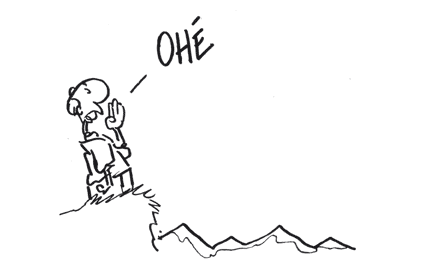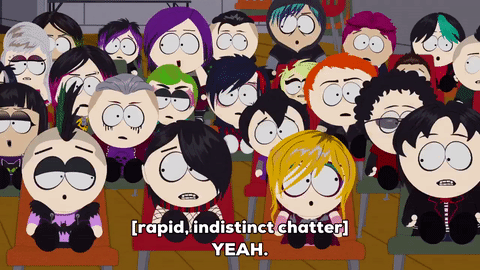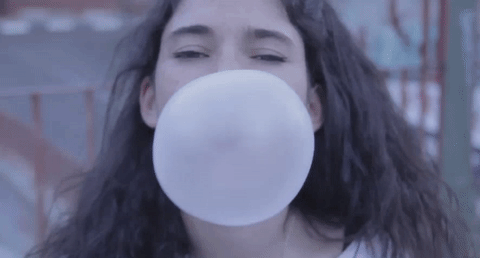Filter Bubble – A Built-In Bias in your Social Media Feed and Searches
 Picture this – You enter a room where everyone is exactly like you. Like objects manufactured using 3D printers on a production line with sigma six precision. Everyone has similar likes, dislikes, opinions, and taste. Everyone uses the same language, gets outraged on familiar issues and laugh at the same jokes. That doesn’t sound fun, does it?
Picture this – You enter a room where everyone is exactly like you. Like objects manufactured using 3D printers on a production line with sigma six precision. Everyone has similar likes, dislikes, opinions, and taste. Everyone uses the same language, gets outraged on familiar issues and laugh at the same jokes. That doesn’t sound fun, does it?
Welcome to modern day internet, manipulated by online behemoths, with restricted information flow or filter bubble.
What is the filter bubble?
The internet, once upon a time, was like Pangea. All the available viewpoints, perspectives, ideas and opinions creating one giant pool of information together. However, search engines and social networks with their complex algorithms and in the name of personalization have broken up this singular body and created smaller, isolated islands which are drifting way from each other all the time.
Each of these isolated groups is shielded from the opinions and ideas of the other and is like an echo chamber where the same views and perspectives reverberate. This curated environment, with similar ideologies and like-minded people – where everyone just agrees with each other’s ideas and notions – is known as filter bubble.
The major forms of news, events, and opinion discovering platforms (social media and search) are prioritizing and serving what they believe are more relevant to the specific person rather than showing them what’s important which, in turn, spreads misinformation and deprives everyone, especially, children of their curiosity. They are locking children in specific tribes from an early age where self-interest is all that exists.
Where is the filter bubble found?
The term filter bubble was coined by Internet activist Eli Pariser in his 2011 book, “The Filter Bubble: What the Internet is Hiding from You”. In his book, Pariser explains that everytime you do a Google search, it provides recommendations based on fifty-seven different signals, ranging from previous search queries, past links clicked, the geographic location of where a person is logged on from and more.
In case of Facebook, Pariser noticed that people see more updates from friends with similar political beliefs in their news feeds than those who had opposing beliefs, based on the links the person clicks on.
And in a recent Twitter study named, “Emotion shapes the diffusion of moralized content in social networks”, it was found that political ideas with moral-emotional language do not leave their ideological group boundaries creating their own individual bubbles or tribes.
Is filter bubble a worry?
Filter bubble affects everything and gives you information which is second hand. Personalization can be extremely helpful for finding products or when it comes to personal interests like discovering music or movies which you like, but when this filtering extends to information, facts, news and public concern topics, then it becomes a problem. Sort of an invisible propaganda.
Invisible because most people do not know this kind of filtering exists. A 2015 study suggested that more than 60% of Facebook users are entirely unaware of any curation on Facebook, believing that they see everything from their friends and pages they have liked on their news feeds. So, you’re basically consuming information which is distorted and you don’t even know it.
Can filter bubble have an adverse effect on children?
Definitely. One of the more pressing concerns of the filter bubble is its effect on children who use social media as their primary source for news and information. Filter bubble decreases information diversity and creates bias. It does not paint the entire picture, instead re-confirms our beliefs making people gravitate towards misinformation.
Social media often connects us with like-minded people and presents information which amplifies our convictions. Due to the filter bubble, children from an early age become associated with group identity . No matter how informed or educated you are, it cannot stop you from forming biased opinions. How easy it is to make them believe without any hard evidence.
While passing through various stages of development, children are engaged in the process of shaping their opinions. Instead of widening their horizons using all the information at their disposal, they are shown a ‘limited’ picture further narrowing their world. Instead of having a playground of unexpected encounters with creative and innovative exchange of ideas, they’re left with confirmation bias and an environment where everyone thinks similarly, everyone uses the same language, making them intellectually isolated.
Also, this filter of information goes against the child rights as defined by the United Nations Convention on the Rights of the Children (UNCRC). According to the Article 17 (Access to Appropriate Information), the child has the right to access information that is important to their well-being, from radio, newspaper, books, computers and other sources. Adults should make sure that the information the children are getting is not harmful, and help them find and understand the information they need.
How does filter bubble affects children?
The surroundings, especially the internet, play a fundamental role in the social and emotional development of the child. As we have already seen, social media is an essential part in the process of discovery (news, facts, information et al) and shaping opinions – a gateway to the outside world. And when from an early age all you have is like-minded individuals around who agree with you (effects of filter bubble), they will lose touch with people of contradicting opinions, which only goes on to strengthen their niche. This affects their ability to articulate and have a discussion. When all they know is one side of a story, how will they have the ability to think critically and engage in a constructive discussion? Their stance will be influenced by what they are made to see on face value rather than one which is informed by facts and considered after weighing several aspects of the issue.
Is there a way to avoid filter bubble?
Now that’s a tricky one. Do you really want to prick your child’s filter bubble and let them seek perspectives which challenge their own? One of the reasons driving the echo chamber is confirmation bias. Our psychological tendency is to follow news, people and forums which confirms what we already know. Even when we are presented with evidence to the contrary we show a tendency to dismiss it. For instance, if you’re talking to a fundamentalist, it will take a lot more than facts and figures alone to persuade them that their position is hurtful.
If you want your child to avoid the information filter and expose them to content which will reshape their ideologies, here are some possible actions you may undertake.
Things to teach your kids:
For Search – Assuming that almost everyone uses Google search, the best way to be somewhat free of Google’s filter bubble is to log out of your Gmail, delete search history/browser cache and use incognito mode/Private Window of the browser to search content or consume information. This will not make your search or content completely free of filtered or bias information, as the search also factors in other parameters like location, device etc, but it will at least, let you partially escape it. The best way would be to stop Google altogether and opt for DuckDuckGo, which ensures privacy.
For social media – For Twitter – otherside.site lets you mimic the feed of any other Twitter user. If you want to know what the two leaders of opposing political parties read on Twitter, then this site allows you to do that. A chrome extension called FlipFeed, infers your political beliefs based on your feed and then shows you a feed of someone with opposing views. For Facebook – Politecho.org, a chrome extension shows political biases of your Facebook friends and newsfeed. It shows a graph of the political leanings of your friends.
Curiosity is a well-recognized trait in children and can play an important role in bursting the bubble. As a parent, teaching children to question everything they read and see and empowering them with authority to go out there and explore things outside their self-affirmation will be helpful. Instead of letting them to curl up and be cozy in their information cocoon, prepare them to be an adult who exercises choices and expose them to an environment when mutual understanding is challenged to a certain extent when it comes to certain fundamental beliefs.
The filter bubble goes against the original ethos of the internet as an open platform for the spread of ideas. To burst this bubble, the onus falls on us. It is less about escaping the bubble or settings and more about simply being aware of the bubble. From time to time we should seek for ideas and thoughts which are unlike ours, take an objective view and step into someone else’s shoes. Either that or we follow the tune of the pied piper.









